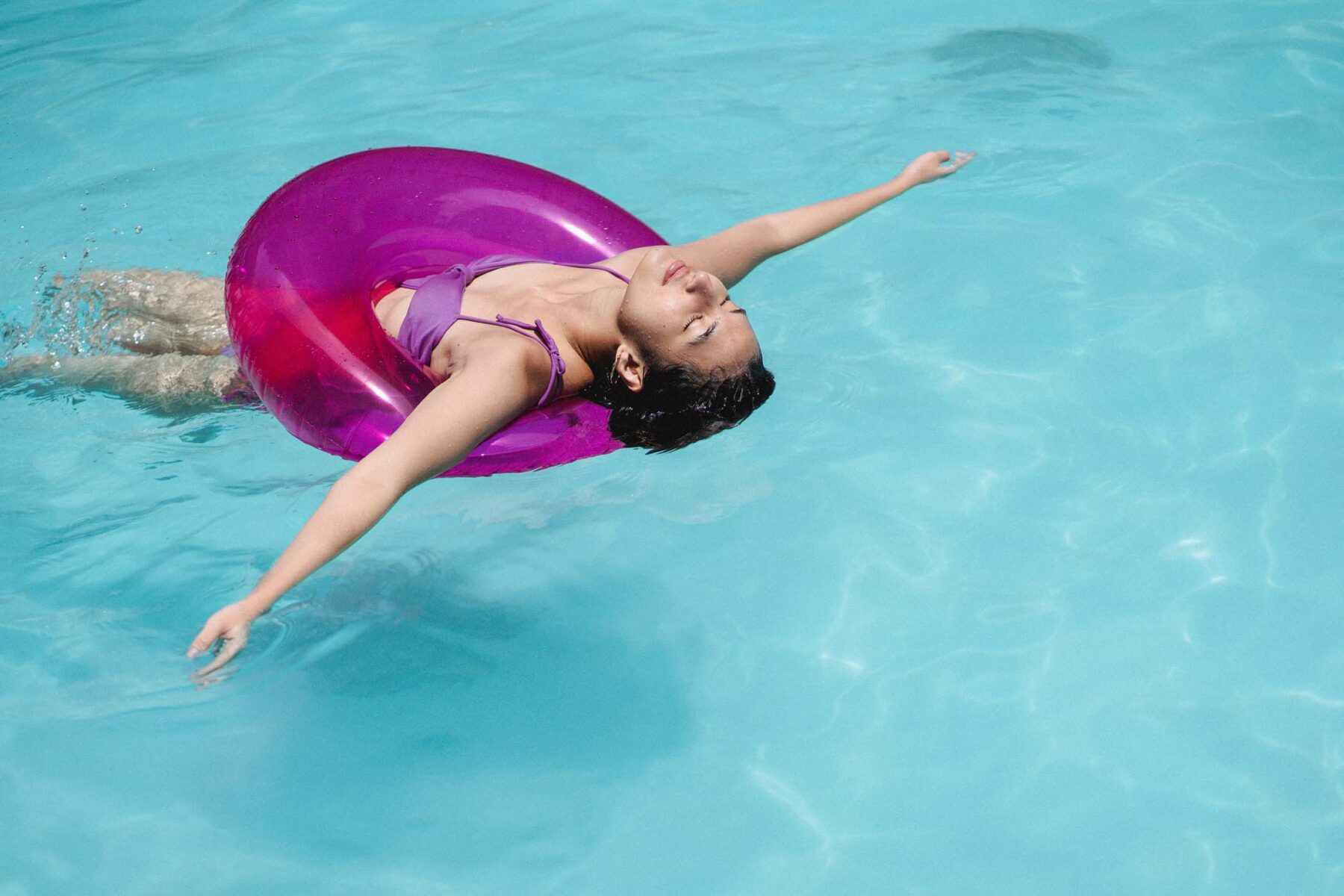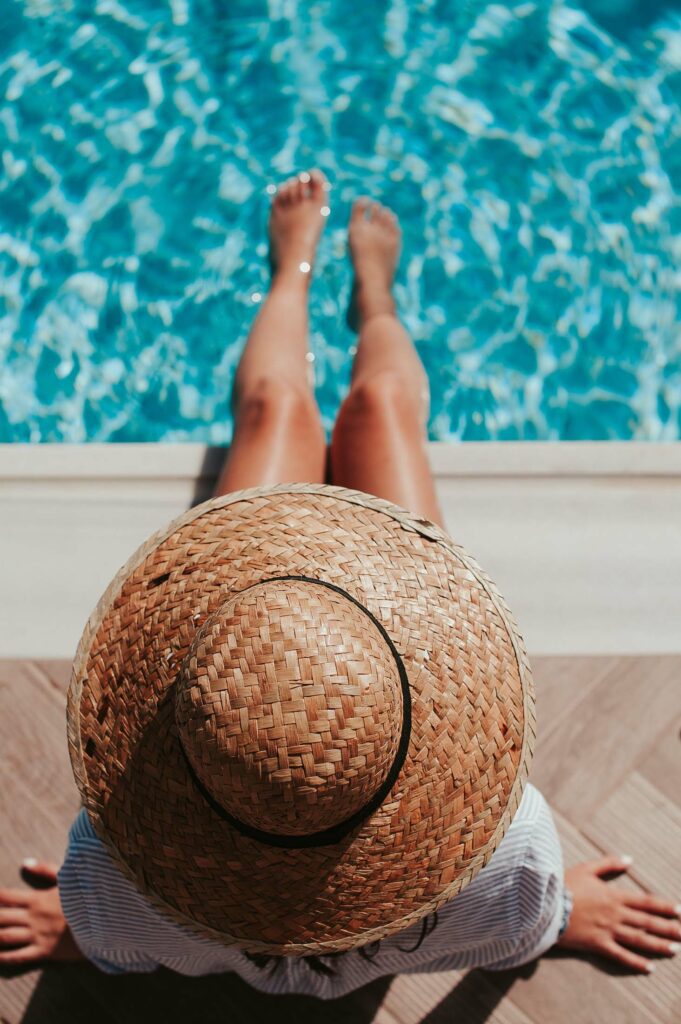How Extended Exposure to Chlorine Affects Sensitive Skin
Summer means not only more time at pools but also more time exposed to chlorine; here’s what to know about its damage to the skin.

You’ve heard of the risks that come with summer — sunburns, drowning and heat exhaustion. But we often miss one culprit that damages our bodies: chlorine.
Chlorine is used to disinfect and purify the water in swimming pools. Unfortunately, the chemical can also act as an irritant for people’s skin, especially when it remains in contact for extended amounts of time.
As a competitive swimmer, I’ve had a lot of experience with different swimming pools and the way that chlorine can impact your skin. I’ve been swimming for almost 14 years and, as a result, have spent countless hours in the pool. Consistently being exposed to chlorine began to affect my skin in negative ways, and I had to learn how to manage the impact it had on my body to keep swimming without damaging my skin.

It’s first important to recognize that there are a lot of variables that go into how skin reacts to chlorine. Every pool is different, and factors like varying chlorine levels, air quality/circulation and time spent in the water, all affect how chlorine interacts with your body.
Sensitivity to chlorine can also develop over time. My skin never reacted poorly to chlorine until recently. Chlorine sensitivity and skin irritation can increase over time as a result of long-term exposure, so the more time you spend in and around chlorinated pools, the more likely it is to negatively affect your skin.
The most common effect of chlorine is dry skin. Swimming for two hours every day always dries out my skin, especially on my face, which can become visibly and uncomfortably dry if I don’t moisturize soon after leaving the pool. This is because the hypochlorous acid that’s formed when chlorine reacts with water opens pores and strips away natural oils, leaving the skin dry and irritated.
I struggle with keeping chlorine from negatively affecting my face, as that tends to be the most sensitive area of my skin and has the strongest reaction to chlorine. I discovered that I always need to thoroughly wash my face as soon as possible after leaving the pool, or my skin will start to become excessively dry and uncomfortable. Even waiting 30 minutes to wash my face and apply face lotion can lead to irritated skin, and I often need multiple layers of moisturizer to eliminate the dryness.
Aside from dry skin, long exposure to chlorinated water can cause itchiness, redness/irritation and, in more extreme cases, chlorine burns. These burns aren’t genuine chemical burns but something referred to as irritant dermatitis that comes from hypersensitivity to chlorine.
If I spend long hours in and around the pool due to a swim meet lasting the entire weekend, I often get chlorine burn around my mouth and nose. The first few times I wound up with chlorine burn, it was only on my face and disappeared in about a day. However, my most recent experience with long chlorine exposure was this year and far more disconcerting. Over the course of a 3-day swim meet, I had chlorine burns all over my legs. My skin became red and irritated; I had a rash on my legs, and my skin burned and hurt to the touch. Despite washing and moisturizing my skin, the burns lasted for a full week after leaving the pool.
If you’re in contact with chlorine, make sure to rinse with fresh water and moisturize regularly. For chlorine burn, I found it best to use a thicker, unscented lotion (I use Eucerin) and apply it multiple times a day to combat the dryness/irritation. You can also use Vaseline or Aquaphor.
This doesn’t mean that any contact with chlorinated water will immediately cause painful reactions on your skin. It’s simply important to be aware of the effects of extended exposure to chlorine and how to take care of your skin in these situations.
So, before diving into any pools this summer, make sure you have a good moisturizer on hand and remember to wash away the chlorine before heading to your next activity in Austin.






